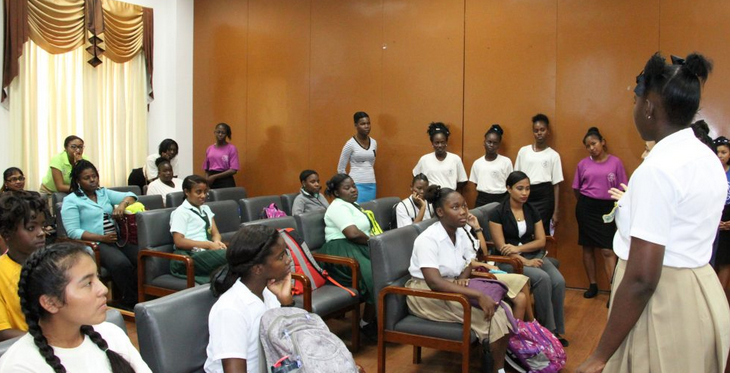"Right now we have only one doctor here and they are many people who have to be treated. This is not an ideal situation, we want donors to assist wherever possible," he said. This abysmal condition is replicated in many African countries.
On Health Care
Canada has recently contributed through its Canadian International Development Agency (CIDA) to support the construction of a classroom block at St Anne’s Brunapeg Mission Hospital School of Nursing, to help alleviate shortage of these healthcare professionals in Zimbabwe.
CIDA contributed $34,000 towards the construction of the additional infrastructure at this mission hospital which is training 90 students at various levels and serves more than 170 000 people in the Mangwe district.
“It is Canada’s hope that this project will help to mitigate the impact of the brain drain by expanding training opportunities for health personnel while improving access to health care for a large number of Zimbabweans,” said Glenn Sheppy, Canada’s deputy ambassador commissioning the classroom block.
“We acknowledge the development gains that accrue from healthy communities. It is with this in mind that Canada is pleased to support programs that promote access to vital social services such as health and education.”
The flight of skilled health personnel, including nurses and midwives is eroding Zimbabwe and Africa’s capacity to improve health delivery services in rural areas where up to 80 percent of people on the continent reside.
The high staff turnover in most rural health centers is due to poor salaries and daunting environment characterized by poor housing, inadequate equipment and drugs, lack of infrastructure such as roads, water and electricity.
Most nurses are not keen to work in rural areas and without preferential treatment when it comes to working conditions and salaries, rural communities will continue to suffer.
“Developed countries must continue to assist rural hospitals such as Brunapeg Mission hospital because they are the ones who are benefiting from our children who are going to England, Australia, America and many other countries,” said Sibangani Moyo, 70, who has retired to stay at his rural home in Brunapeg.
“Right now we have only one doctor here and they are many people who have to be treated. This is not an ideal situation, we want donors to assist wherever possible,” he said. This abysmal condition is replicated in many African countries.
In the Mangwe district, people walk long distances to receive treatment at the mission. “There are no clinics closer to our homes. Women suffer most because they have to take their sick husband, children and other relatives to the mission hospital which is far away from where we live,” said Gogo Agnes Ndlovu.
“Life is even worse for pregnant women who need regular check-ups. The government must pay the nurses and doctors more money for our children to treat us well. If nothing is done, bayabaleka besiya e-South leBotswana (doctors will leave and seek jobs in South Africa and Botswana). Who will remain behind to treat us?” she said.
Health officials estimate that there are about 400 doctors and close to 11, 000 nurses in the country. The government introduced the Primary Care Nursing program in addition to the general nursing course to try and address the problem of brain drain in Zimbabwe.
According to a 2006 World Health Organization report, at least 68 percent of Zimbabwe’s remaining health workers intend to migrate to rich countries where working conditions are better. The UN agency reported that in Zimbabwe, 11 percent of doctors and 34 percent of nurses and pharmacists and other key health specialists have left the country.
Tsiko is The Black Star News’ Southern Africa correspondent based in Harare.
To subscribe to or advertise in New York’s leading Pan African weekly investigative newspaper, please call (212) 481-7745 or send a note to [email protected]
“Speaking Truth To Empower.











